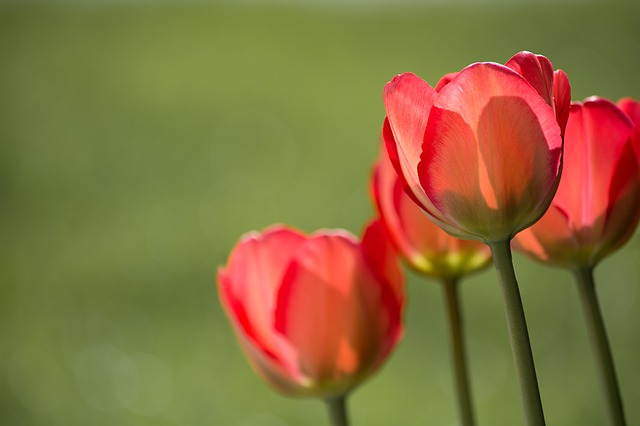
There are so many natural alternatives available to you if you want to turn your garden organic. Once you learn about them, they are surprisingly easy to put into place.
So that you don’t shock your plants, try gradually accustoming them to conditions and temperature. Put them out in the sun for approximately one to two hours on the very first day. Over the course of a week, slowly increase the amount of time that you leave them outside. By the end of the week, your plants should be ready to make the big move with no problem!
Prior to planting a garden, think through what you want to do. It will be a while before things start to sprout and visually remind you of what was planted where, so a written record can be helpful. With a plan, you will also be less likely to lose track of small groups or individual plants within a large and ambitious garden.
Protect your tender deciduous shrubs. Shrubs in pots especially need special care in the colder weather. Join them together at the top, and use a blanket or old sheet to cover them. When you do this you allow air to flow and circulate which can actually prevent rotting, this method is great and better than just wrapping your plant in some plastic.
Create your own garden from scratch with seeds, rather than plants. Once the plant is healthy enough, replant it in your garden with the appropriate type of soil. Seeds eliminate the waste of plastic containers from nurseries which rarely get recycled. There are some nurseries, however, that send their plants out in organic potting materials.
There are natural steps you can take to keep garden pests at bay. Onions and marigolds can get rid of pests in the garden. You can also prevent insect pests by using wood ash like mulch around your trees and shrubs. With these natural methods, there is no need to purchase expensive, harsh pesticides.
When gardening, avoid the use of strong broad-spectrum pesticides. Broad-spectrum pesticides will kill insects that are helpful to your garden as well as the harmful ones. The beneficial insects, which kill the pests, are much more sensitive to pesticides than the pests. Using them will reduce your population of good bugs, and increase the bad. You will need even more pesticides to deal with the problem, and it will never really go away.
Tend to a garden as a way to relax. Peace and relaxation can be found through several different avenues. Gardening is a relatively easy way to pursue this goal. The generous return of a garden far outweighs the minimal investment of money required. The most important reward, however, is the sense of accomplishment you experience when your plants mature.
Choose a specific plant to become your garden’s focal point. A focal point, in a strong garden design, will attract eyes and hold them there. Usually this focal point is a luscious plant that is distinctly different from the plants and scrubs that surround it.
Water your garden regularly and smartly. Soaker hoses save time by watering all of your plants at once, rather than individually with a standard hose or watering can. Keeping the water pressure low on your soaking hose will help avoid harm to tender plants. Allow the soaker to stay on for a few hours, so your plants can receive water while you tend to other tasks.
To keep dogs from disturbing your garden, spray some old aftershave, cologne, perfume or other strongly-scented products in the dirt or grass surrounding it. Your dog will be less attracted to your garden when these scents overpower compost scents and other smells dogs like.
To attract the right kind of insects, plant heather. Bees are attracted to heather, and they can bring a source of nectar early in the spring. Plant a heather bed, it will house many bugs that are good for a garden such as spiders and ground beetles. Because of this, you should put on a pair of gloves when it’s time to prune the heather.
Mixing a variety of plants at different heights is how you can make a very interesting English garden. If you want a more organized look, select plants that will grow to the same height and put them in the same bed.
Add aspirin to your plants to help them fight sickness. One and half tablets of aspirin in a couple gallons of water will be a wonderful help to the plants you have. Simply spray your plants with the mixture, and this will help them fend off various diseases. Use this method every three weeks.
Anyone may plant gardens, but only those who are knowledgeable can get more out of their planted crops. Use what you have learned to make your garden grow!